Are There 'Good' Civil Wars?
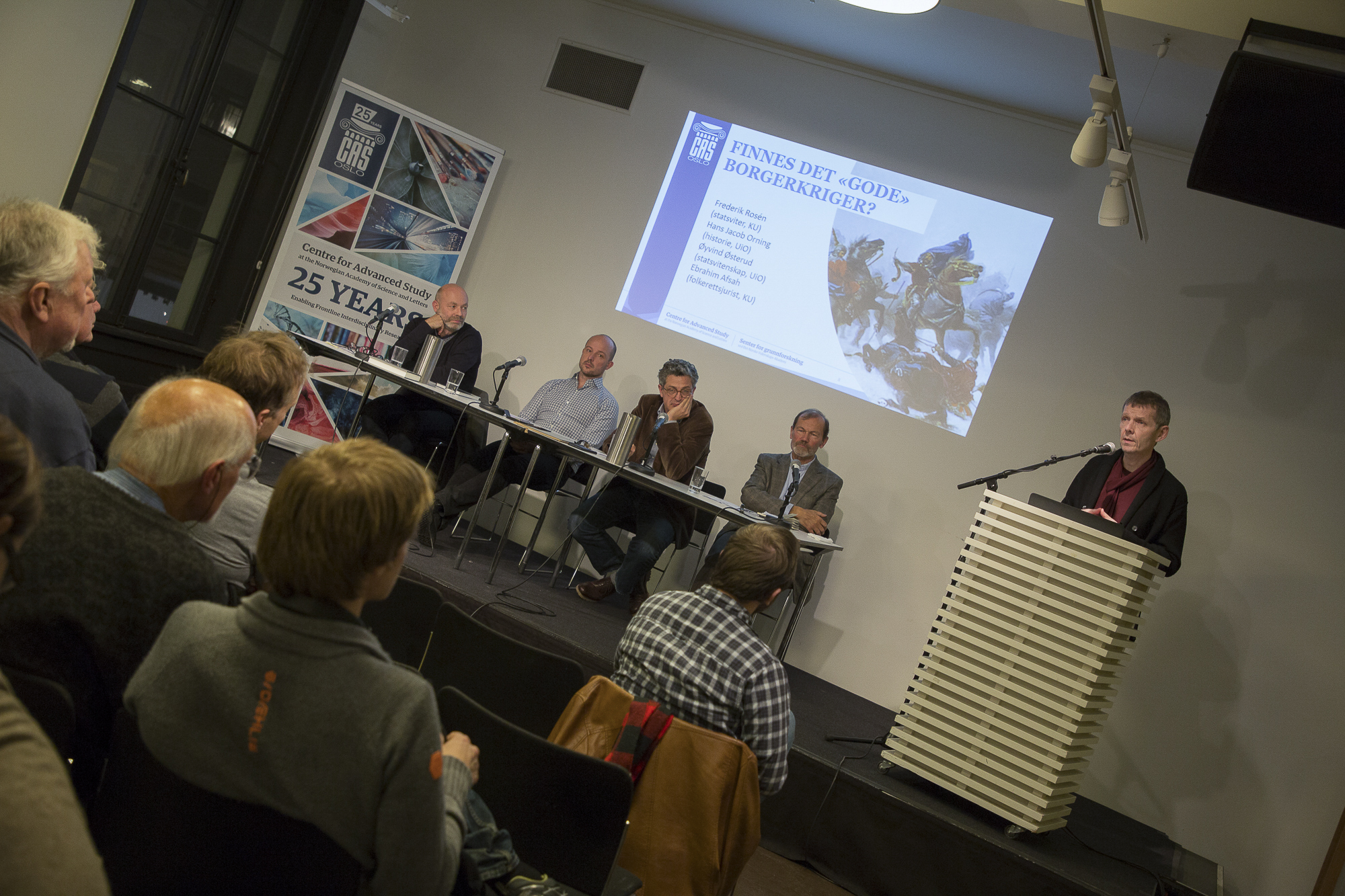
War has changed.
‘Since the end of the Cold War, less than 10 percent of all armed conflicts have occurred between individual states,’ according to Jón Viðar Sigurðsson, professor of history at the University of Oslo (UiO). ‘The remaining 90 percent are what many scholars would describe as “civil wars.” This has led to a vigorous discussion about the term “civil war” and how it should be defined. And here, as with so many other topics, scholars are in no way in agreement about a common definition.’
Five such scholars, Sigurðsson included, earlier this month hosted a seminar to highlight a particular type of conflict that has grown more common over the last several decades: civil wars.
The five scholars, faculty members at the University of Oslo and the University of Copenhagen (UCPH), are this academic year participating in the research project ‘The Nordic "Civil Wars" in the High Middle Ages in a Comparative Perspective,’ hosted at the Centre for Advanced Study (CAS Oslo). Sigurðsson and Hans Jacob Orning, also professor of history at UiO, are leading the project.
But the scholars didn’t host the event simply to point out that today’s wars are different than yesterday’s. Instead, they presented several arguments around a potentially thorny topic related to conflicts. That topic was on display in the seminar’s name: ‘Are there “good” civil wars?’
Responsibility to (not) protect?
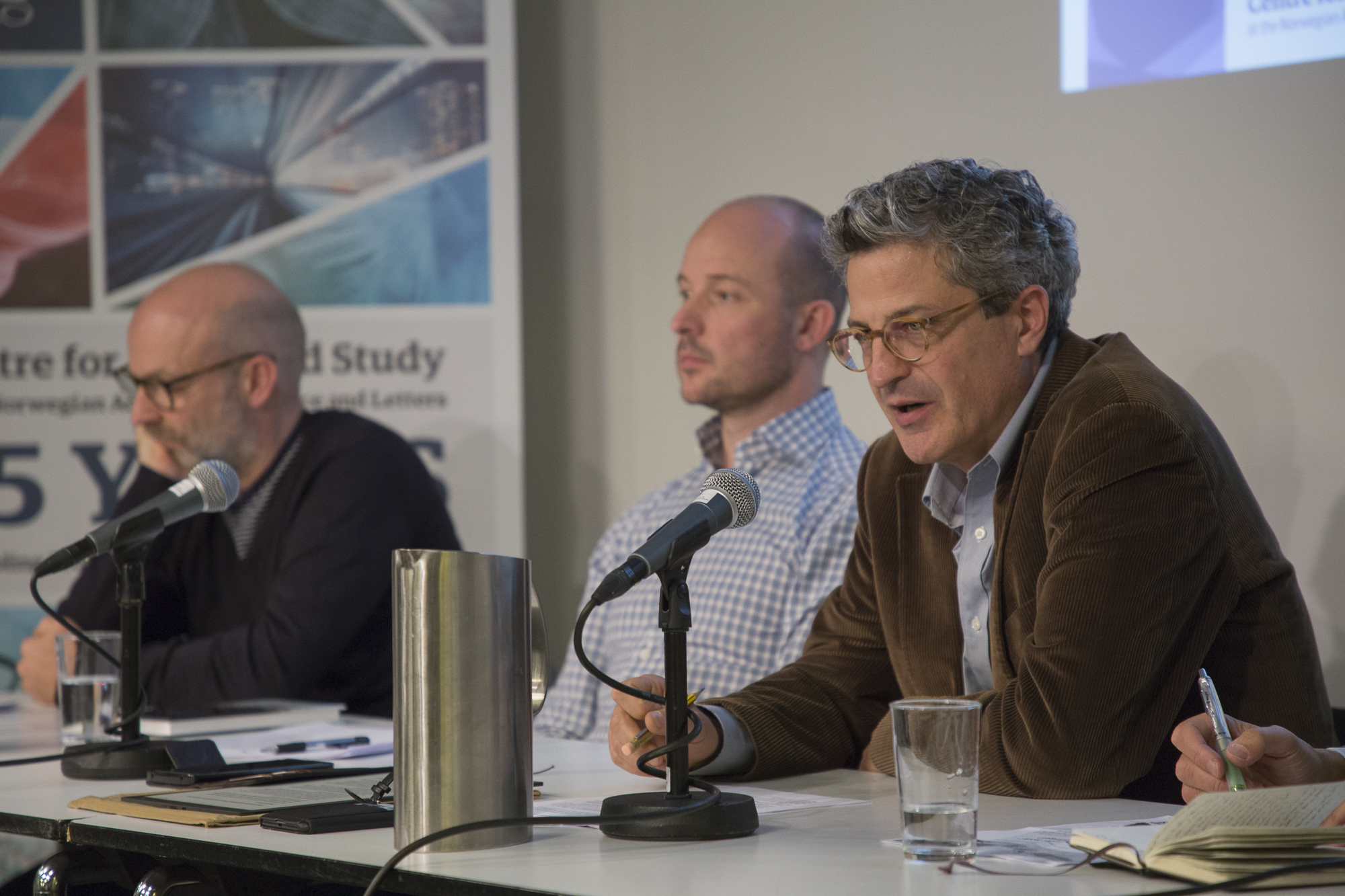
‘If civil wars thus tend to be even more brutal than “normal” wars, if they by definition harm vulnerable, ‘innocent’ civilians and not professional soldiers, if due to the social proximity of those doing the killing and those doing the dying, to say nothing of the rape, arson, theft that are so much more a characteristic part of them than in regular inter-state fighting, how then could a decent human being … argue that some civil wars might actually be a good thing and, more concretely, that one should allow them to run their course rather than trying to stop them or to alleviate their effects?’ Afsah asked.
It was a rhetorical question. After imploring the audience not to ‘shoot the messenger,’ Afsah delved into the philosophies of great thinkers such as Augustine of Hippo, Reinhold Niebuhr, and Thomas Aquinas, from whose work the moral concept known as the ‘responsibility to protect’ emerged in the early 2000s.
In a nutshell, the concept argues that powerful states have had the right to send armed forces into weaker ones to protect vulnerable groups of people – for example an ethnic minority facing genocide at the hands of government forces, Afsah said.
Many scholars rely on a six-point test that looks at, among other factors, the cause, intention, and the decision-making process behind intervening in a conflict.
Crucially, that test also looks at the probability of the intervention succeeding. That, Afsah said, is where the argument for intervening in most civil wars falls apart. While offering food, shelter, and medical aid to vulnerable groups can cause some short-term relief, he said, it can also lead to long-term pain.
‘The unpleasant and often ignored truth about war is its greatest, perhaps only virtue: It can resolve political disputes and thereby lead to peace,’ Afsah said. ‘The imposition of cease-fires and armistices from the outside, without decisively shifting the balance of power by deliberately taking sides, prevents this virtue from being realised. Because the underlying dispute persists and neither side can either impose its vision or has to accept the consequences of defeat, artificially stopping the fighting from running its course merely permits the warring factions to regroup, retrain, re-equip, entrench to prepare to fight another day.’
A ’forgotten’ phenomenon
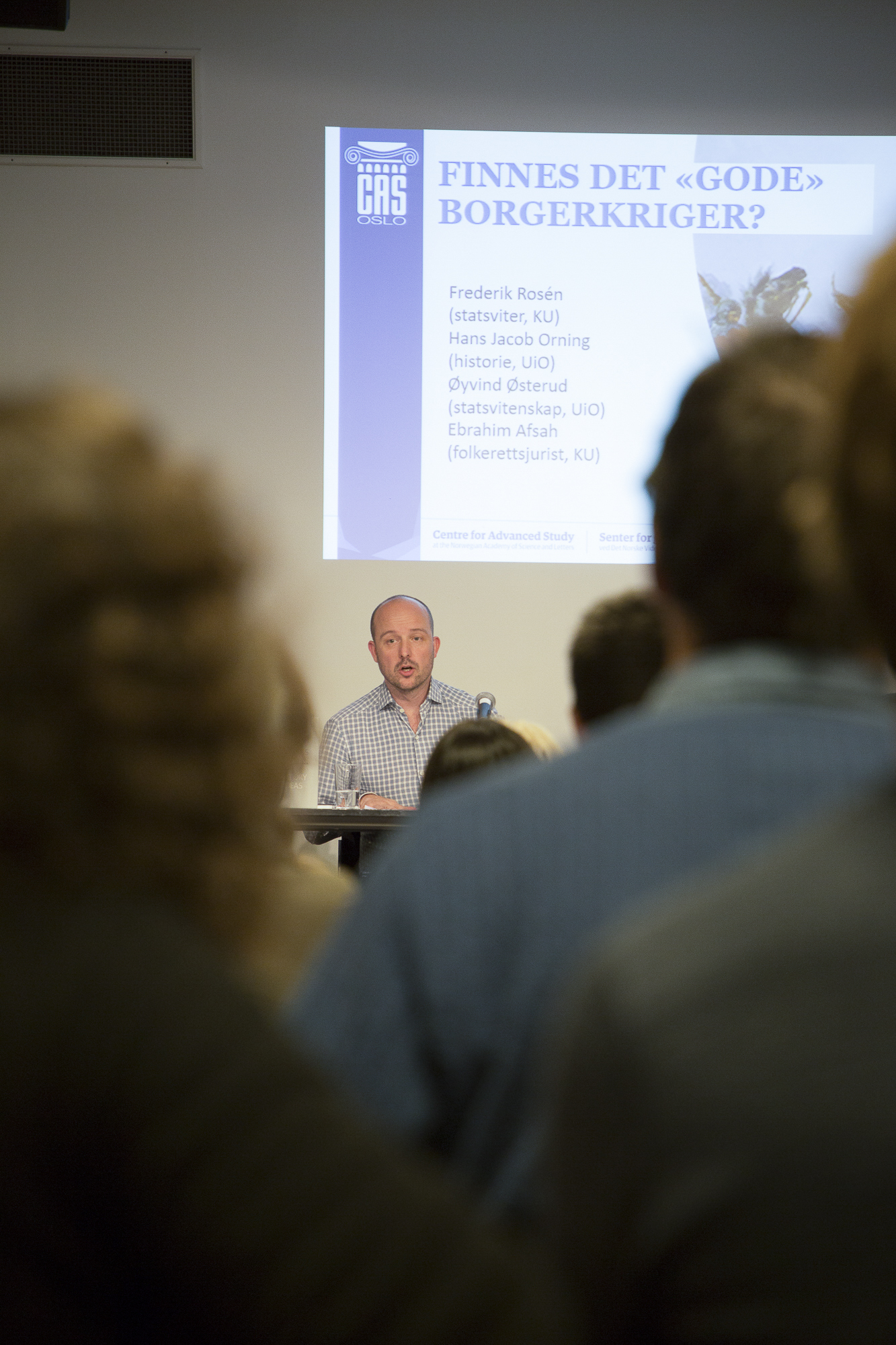
Many of those arguments – whether it’s the just war theory, the doctrine of pre-emptive strikes, or the belief that warfare can drive economic growth – apply only to international armed conflicts between states, Rosén said. In comparison, there isn’t as strong of a literary or philosophical tradition that deals with civil wars, he said.
‘In fact, recent literature has made the surprising observation that we apparently have forgotten about the phenomenon of civil war,’ Rosén said.
The oversight is slowly being rectified, Rosén said. Recent empirical research that has looked at civil wars has produced a number of hypotheses that aim to explore how those conflicts can be beneficial. One hypothesis treats civil wars as a ‘moment of truth’ that exposes simmering conflicts in order to resolve them; another postulates that civil wars power creative processes that over time can produce more stable societies.
‘Generally speaking, the newest theories about “good” civil wars on the one hand attempt to deal with the myth that civil wars are inherently bad, that they involve friends killing friends, brothers killing brothers,’ Rosén said. ‘On the other hand, they question whether others should intervene militarily to stop them – or whether we should just let people beat up on each other until order is restored.’
Conflicts have ‘fundamentally changed character’
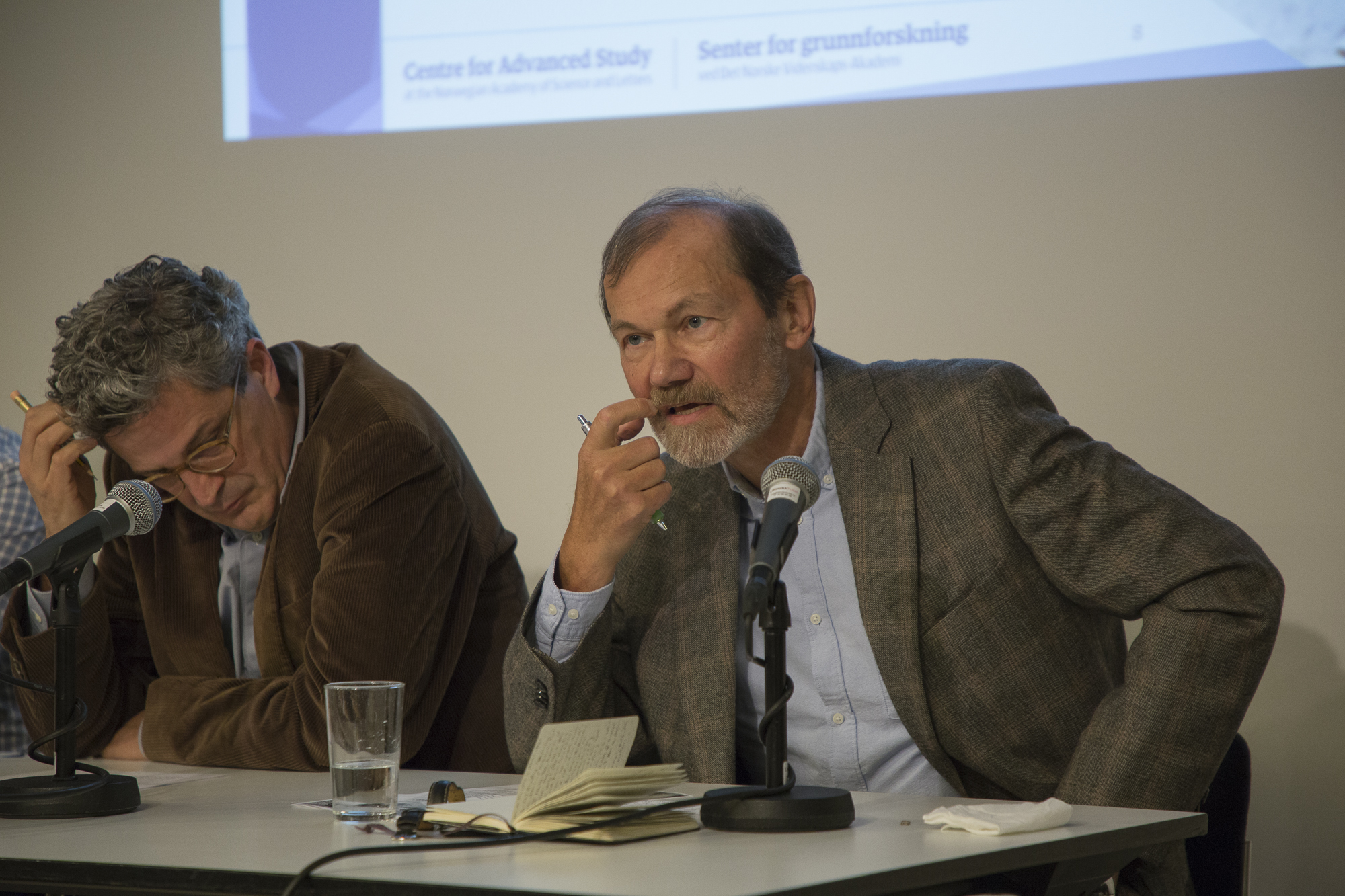
‘What’s behind all these discussions is that wars have fundamentally changed character,’ said Øyvind Østerud, professor of political science at UiO.
The end of the Cold War and the collapse of the Soviet Union sent shockwaves through the established global political order, toppling governments and sparking conflicts first in Europe, and then later in the Middle East and North and East Africa. Examples include the Yugoslav Wars, Irak and Afghanistan following the War on Terror, and the Libyan Civil War.
Most conflicts since the end of the Cold War haven’t been wars between sovereign states, Østerud said – nor have they been civil wars in the traditional sense, which pit government forces against insurgents. Instead, the conflicts are often asymmetrical (in which the sides in conflict are unevenly matched), with unclear front lines, beginnings and ends, and divisions between civilians and soldiers.
‘Designating the majority of conflicts after the Cold War as civil wars requires an expanded definition,’ Østerud said.
Some historians have, for lack of a better term, simply described these conflicts as ‘new wars,’ Østerud said. Others have objected to that term, arguing that there is nothing inherently ‘new’ about the conflicts.
Don’t call them ‘civil wars’
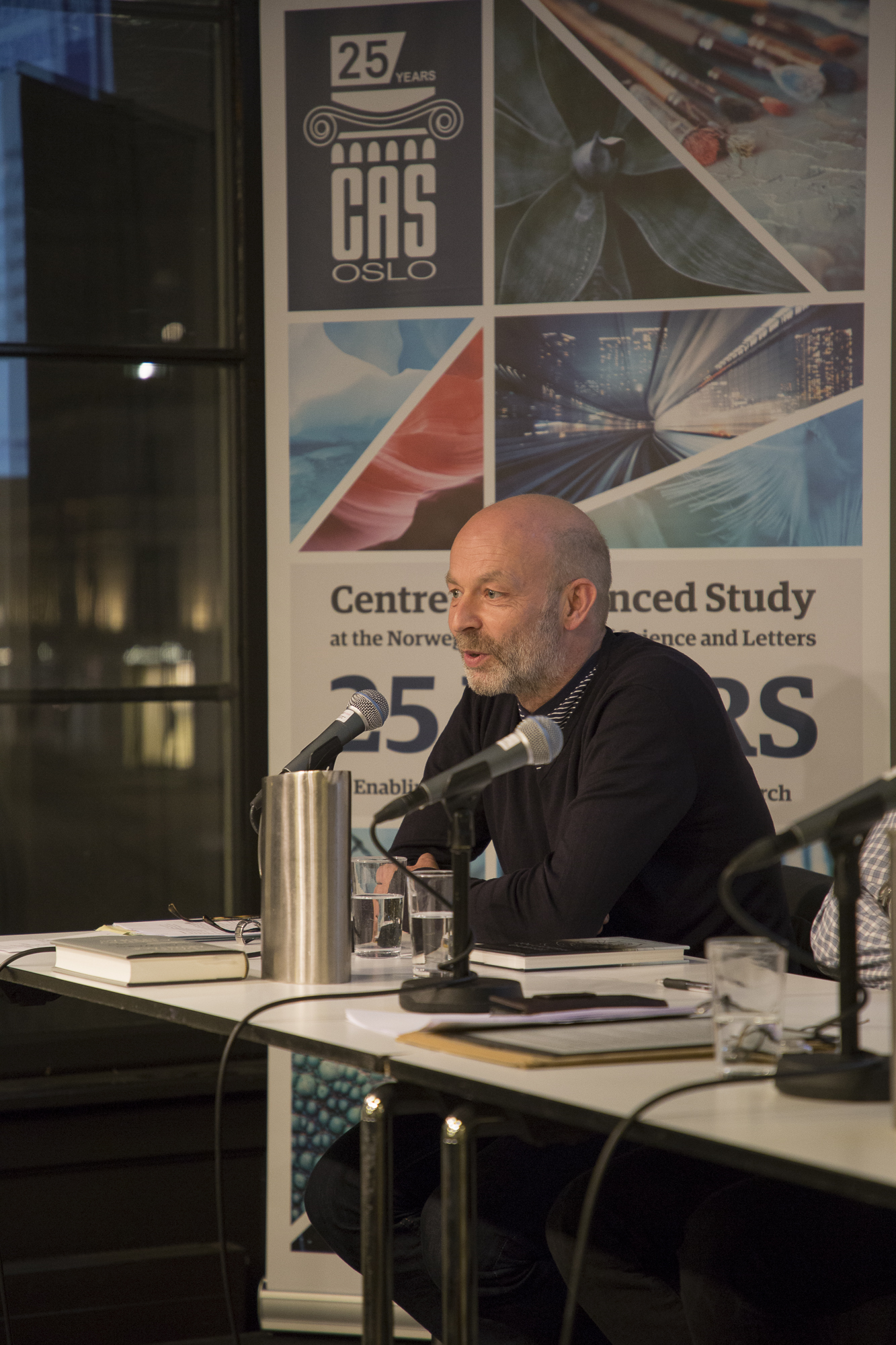
Since the dawn of western civilization, Orning said, civil wars have been associated with ‘collapse, chaos, and a breakdown of order. But,’ he added, ‘it is possible to look at civil wars and conflicts from other perspectives.’
Using his own field, Nordic medieval history, as an example, Orning argued that the period immediately preceding the civil war era in Norway – when multiple kings ruled the kingdom – was more peaceful than other historians have claimed.
‘While [King Sverre Sigurdsson] and [King] Magnus Erlingsson … were threatening to go to war with each other, their supporters were in Nidaros drinking together, hanging out, and having a good time,’ Orning said. ‘That’s because they have relatives in each other’s camps. So when the kings commanded them to go out and fight on their terms, the men said “No way. I’m not fighting this war for you. I’m fighting my own battles.”’
To inspire more men to take up his cause, Sverre promised his supporters that they would win not only the position in society of the man they bested in battle, but also his wife.
‘It’s probably the case that many of these women weren’t thrilled about being given away to [rebels], but I actually believe some of them were fine with it,’ Orning said. ‘The brilliant thing here is that what looks like a revolution … is actually defined by continuity, because these new men assume old positions of power and ensure that families live on.’
In that sense, the Nordic conflicts that medieval historians have classified as civil wars actually helped shape those societies. With that example in mind, Orning said he endorses the idea that there are some ‘good’ civil wars, with one important caveat: ‘as long as we don’t call them “civil wars.”’
By Carl Fredrik Schou Straumsheim